Readings & Workshops (East) director Bonnie Rose Marcus writes about Poets & Writers’ Connecting Generations seventeenth annual Intergenerational Reading held at Barnes & Noble at Union Square in New York City.
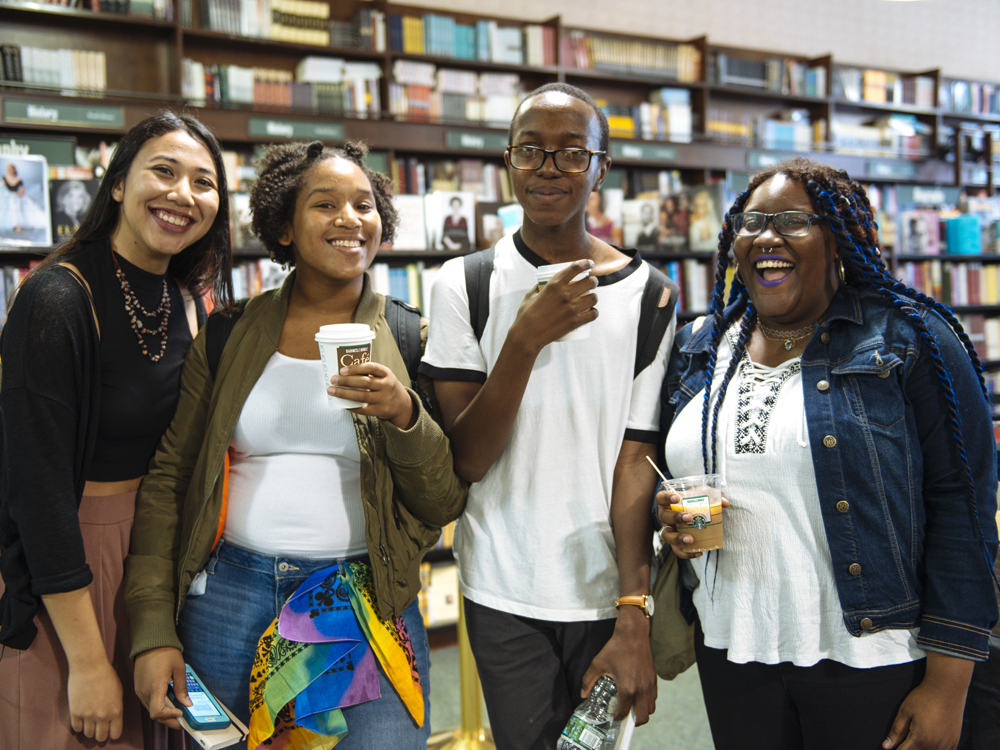 On Saturday, June 23, Poets & Writers held its seventeenth annual Intergenerational Reading at Barnes & Noble at Union Square, where we’ve held the reading for the past seven years. As I listened to the thirty-six writers from the ages of eleven to eighty-six, I thought back to the beginnings of this celebratory reading, when we were given a grant in 2001 from the Louis and Anne Abrons Foundation to conduct writing workshops at senior and teen community centers. Visiting the programs, I was moved by the diversity of voices, and the similarities and differences in the generations. I thought it would be inspiring to bring these generations together. The first Intergenerational Reading was held in a community room at the Goddard Riverside Community Center’s NORC Program, with about six readers and an audience of about twenty.
On Saturday, June 23, Poets & Writers held its seventeenth annual Intergenerational Reading at Barnes & Noble at Union Square, where we’ve held the reading for the past seven years. As I listened to the thirty-six writers from the ages of eleven to eighty-six, I thought back to the beginnings of this celebratory reading, when we were given a grant in 2001 from the Louis and Anne Abrons Foundation to conduct writing workshops at senior and teen community centers. Visiting the programs, I was moved by the diversity of voices, and the similarities and differences in the generations. I thought it would be inspiring to bring these generations together. The first Intergenerational Reading was held in a community room at the Goddard Riverside Community Center’s NORC Program, with about six readers and an audience of about twenty.
This year’s writers were from six programs funded by our Readings & Workshops program: senior writers from the Goddard Riverside Community Center, Grand Street Settlement, the Center for Black Literature at Medgar Evers College in collaboration with Siloam Presbyterian Church, Kew Gardens Community Center, and the Stanley Isaacs and Lincoln Square Neighborhood Center. The teen and young adult writers were from Kamit Preparatory Institute, the National Domestic Writers Alliance, Leslie-Lohman Museum of Gay and Lesbian Art, Newtown Literary Alliance, Concourse House, and Office Hours Poetry Workshop.
Hosting our event was veteran host Regie Cabico, a recipient of a Poets & Writers’ Writers for Writers Award in 2006. A pioneer of spoken word, and the first openly queer and Asian slam poet to take top prizes, Regie continues to perform his unique blend of poetry, stand-up comedy, and theater, and teaches writing workshops throughout North America and the United Kingdom.
Regie’s enthusiasm was contagious. It was evident that each reader felt honored and respected, and was cheered on by Regie and the audience, a full house of about seventy-five people. The writers shared work about loss, abuse, and love: a Tibetan woman read a poem about the suffering in her country, another writer shared a prose poem featuring Noah (and his ark) and Donald Trump, and there were many moving pieces about the challenges and celebrations on life’s journey.
Perhaps the best way to sum up the flavor and value of this reading is to hear from some of the writers themselves:
“It is an extraordinary event for so many reasons. It is an opportunity to hear young and old from so many different vantage points. Many of us may never have that chance of hearing stories from the LGBTQ community, the senior community, or inner-city youth, most of whom are passionate, wistful, angry, and gifted. To see that many participants, some who are facing an audience for the first time, pour out their most intimate feelings with pride and receive kudos for their efforts, is a humbling and inspiring experience.”
—Joyce Berger, Kew Gardens Community Center
“This year, I finally shed a lifelong struggle with stage fright and enjoyed myself at the reading! I also relished everyone’s spoken words, especially those of the younger poets who infuse me with creative energy.”
—Suzanne Pavel, Goddard Riverside Community Center
“I have always felt that one never stops learning. Young folks can learn from seniors and vice versa. This year I had the chance to let young folks know about the real situation in Tibet, because they are our future. Afterwards some of the young folks hugged me and commented on the power of my poem. I also think my poem was timely because of the current situation at our southern borders. What struck me most were the young people who spoke so honestly and showed that poetry is an outlet for all of us.”
—Chukie Wangdu, Stanley Isaacs Neighborhood Center
“Young talents lyrically reported their passions from today’s frontlines while older writers arranged those puzzle pieces left on youth’s table. The reading reminded me that poetry is an instrument played to remember, berate, reveal, coax, question, love, revolt, heal, and most significantly, to witness and connect. Thank you for creating space for all of us!”
—Marty Correia, Office Hours Poetry Workshop
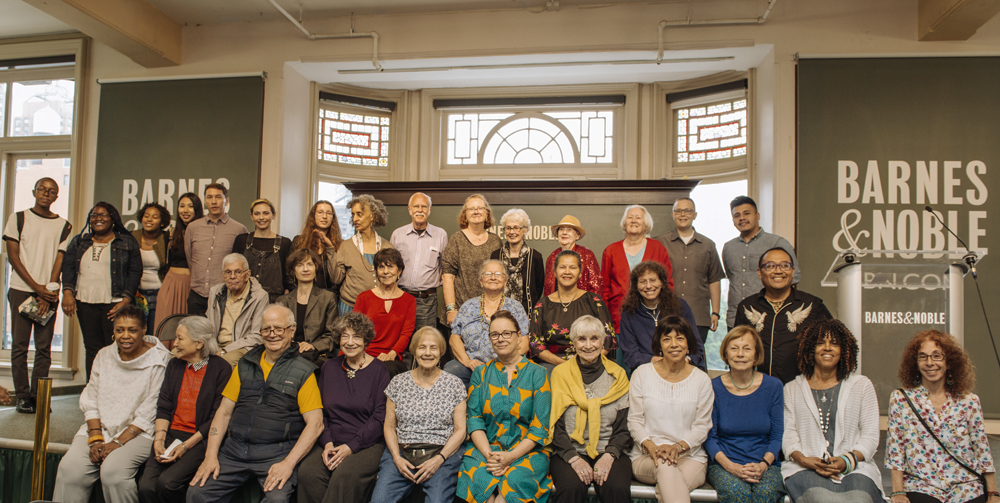
Support for the Readings & Workshops Program in New York City is provided, in part, by public funds from the New York State Council on the Arts, and the New York City Department of Cultural Affairs, with additional support from the Frances Abbey Endowment, the Cowles Charitable Trust, and the Friends of Poets & Writers.
Photos: (top) Dena Igusti, Aaliyah Daniels, Solomon Mussings, and Shakeva Griswould from Urban Word NYC (Credit: Christian Rodriguez). (bottom) Participants of the 2018 Intergenerational Reading (Credit: Christian Rodriguez).




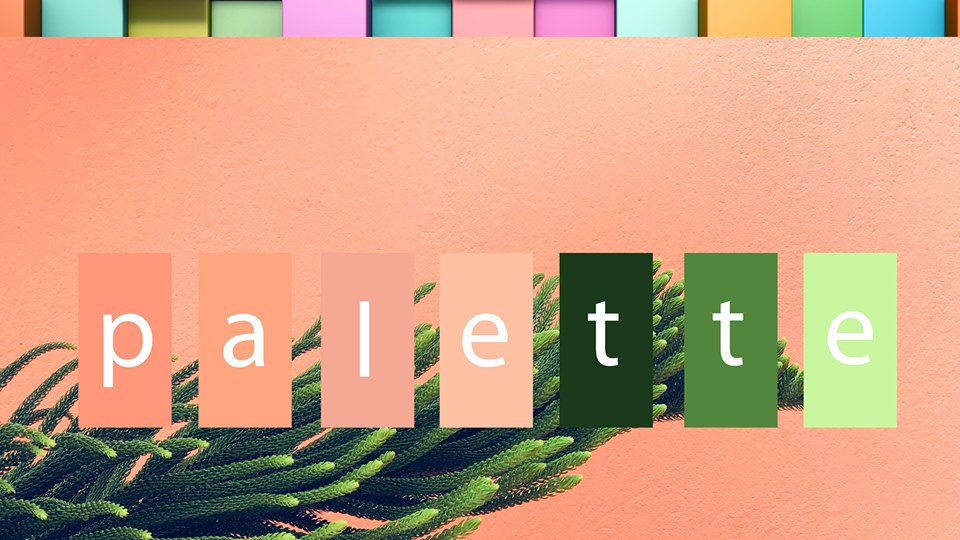
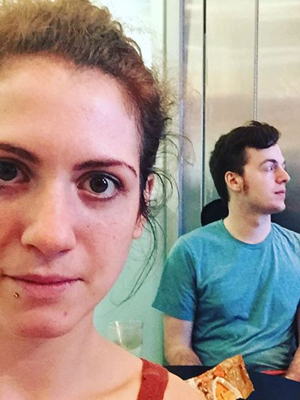 When we set out to build WEIRDD, our monthly poetry reading series held at Books Are Magic in Brooklyn, we had a few apophatic rules of thumb. No flimsy introductions. No parched mouths. No inhospitable (and inexplicable) non-hosting. No regurgitated blurbs. We knew exactly what we wanted to avoid, having been through that wringer, and though our first season hasn’t been without its bumps, on the whole we feel the series has found its early footing in a well-ordered sensibility.
When we set out to build WEIRDD, our monthly poetry reading series held at Books Are Magic in Brooklyn, we had a few apophatic rules of thumb. No flimsy introductions. No parched mouths. No inhospitable (and inexplicable) non-hosting. No regurgitated blurbs. We knew exactly what we wanted to avoid, having been through that wringer, and though our first season hasn’t been without its bumps, on the whole we feel the series has found its early footing in a well-ordered sensibility.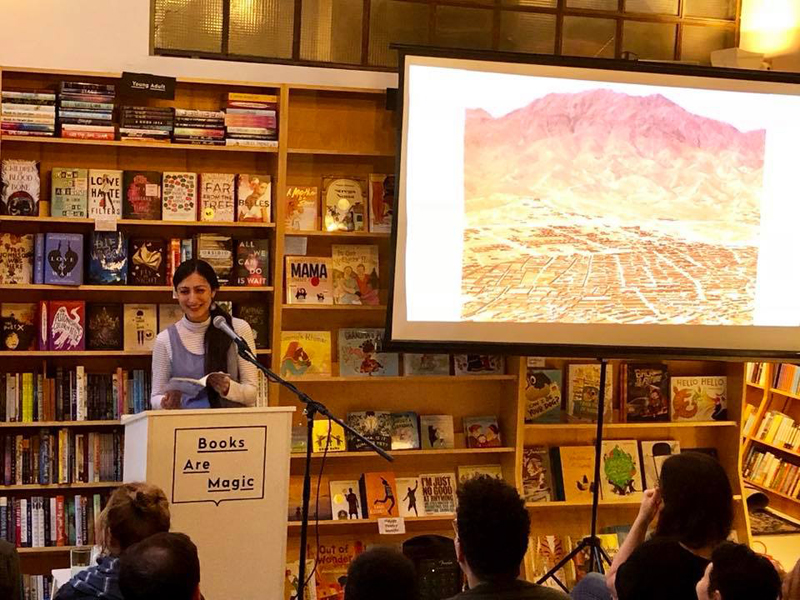 With these guidelines holding space, we’ve learned so much from so many: Jenny Xie’s gnomic scrying, Ricardo Maldonado’s elfin sonatas, Marwa Helal’s recognitive cataracts, Yanyi Luo’s arch scrutiny, Rio Cortez’s yawning infinity, Jayson P. Smith’s quenching jewels, Paul C. Stone’s mastery of the leap, Jen Hyde’s affinity for apertures, Sahar Muradi’s sense of strata, Valerie Hsuing’s sentient microphones, Chase Berggrun’s climbable wordscapes, Wren Hanks’s unflinching apparatus, Amy Meng’s history of rue, Julia Guez’s kaleidoscopic array, Jen Levitt’s droll orbitals, Jerome Murphy’s painterly ambulation, and Joey De Jesus’s omnivolent manticore.
With these guidelines holding space, we’ve learned so much from so many: Jenny Xie’s gnomic scrying, Ricardo Maldonado’s elfin sonatas, Marwa Helal’s recognitive cataracts, Yanyi Luo’s arch scrutiny, Rio Cortez’s yawning infinity, Jayson P. Smith’s quenching jewels, Paul C. Stone’s mastery of the leap, Jen Hyde’s affinity for apertures, Sahar Muradi’s sense of strata, Valerie Hsuing’s sentient microphones, Chase Berggrun’s climbable wordscapes, Wren Hanks’s unflinching apparatus, Amy Meng’s history of rue, Julia Guez’s kaleidoscopic array, Jen Levitt’s droll orbitals, Jerome Murphy’s painterly ambulation, and Joey De Jesus’s omnivolent manticore.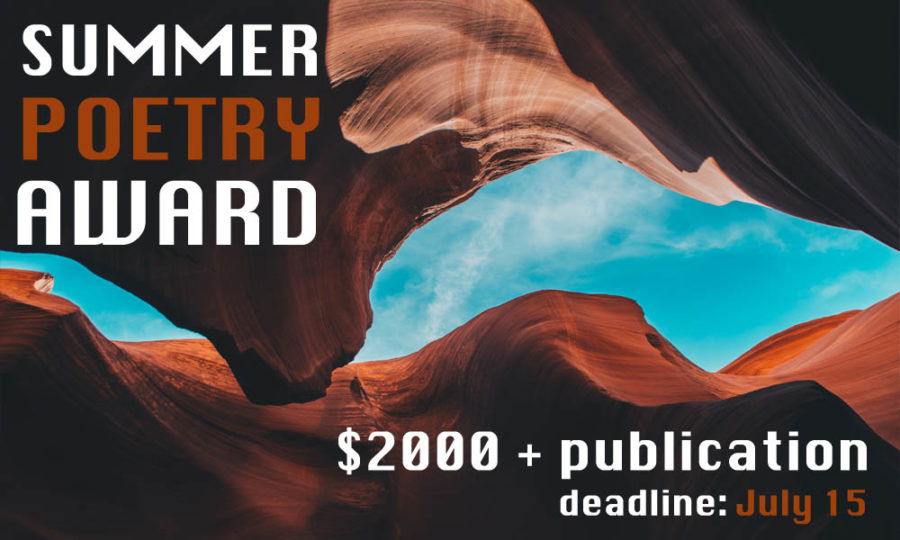
 On Saturday, June 23, Poets & Writers held its seventeenth annual Intergenerational Reading at Barnes & Noble at Union Square, where we’ve held the reading for the past seven years. As I listened to the thirty-six writers from the ages of eleven to eighty-six, I thought back to the beginnings of this celebratory reading, when we were given a grant in 2001 from the Louis and Anne Abrons Foundation to conduct writing workshops at senior and teen community centers. Visiting the programs, I was moved by the diversity of voices, and the similarities and differences in the generations. I thought it would be inspiring to bring these generations together. The first Intergenerational Reading was held in a community room at the Goddard Riverside Community Center’s NORC Program, with about six readers and an audience of about twenty.
On Saturday, June 23, Poets & Writers held its seventeenth annual Intergenerational Reading at Barnes & Noble at Union Square, where we’ve held the reading for the past seven years. As I listened to the thirty-six writers from the ages of eleven to eighty-six, I thought back to the beginnings of this celebratory reading, when we were given a grant in 2001 from the Louis and Anne Abrons Foundation to conduct writing workshops at senior and teen community centers. Visiting the programs, I was moved by the diversity of voices, and the similarities and differences in the generations. I thought it would be inspiring to bring these generations together. The first Intergenerational Reading was held in a community room at the Goddard Riverside Community Center’s NORC Program, with about six readers and an audience of about twenty.